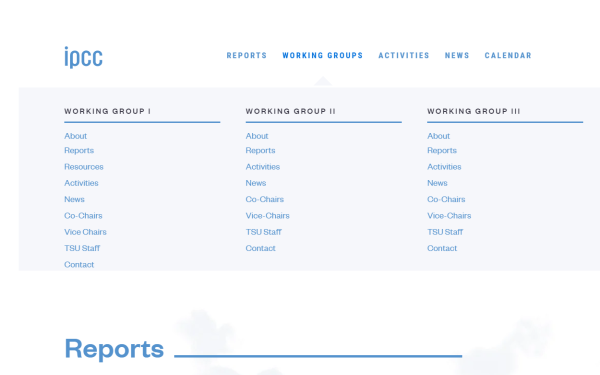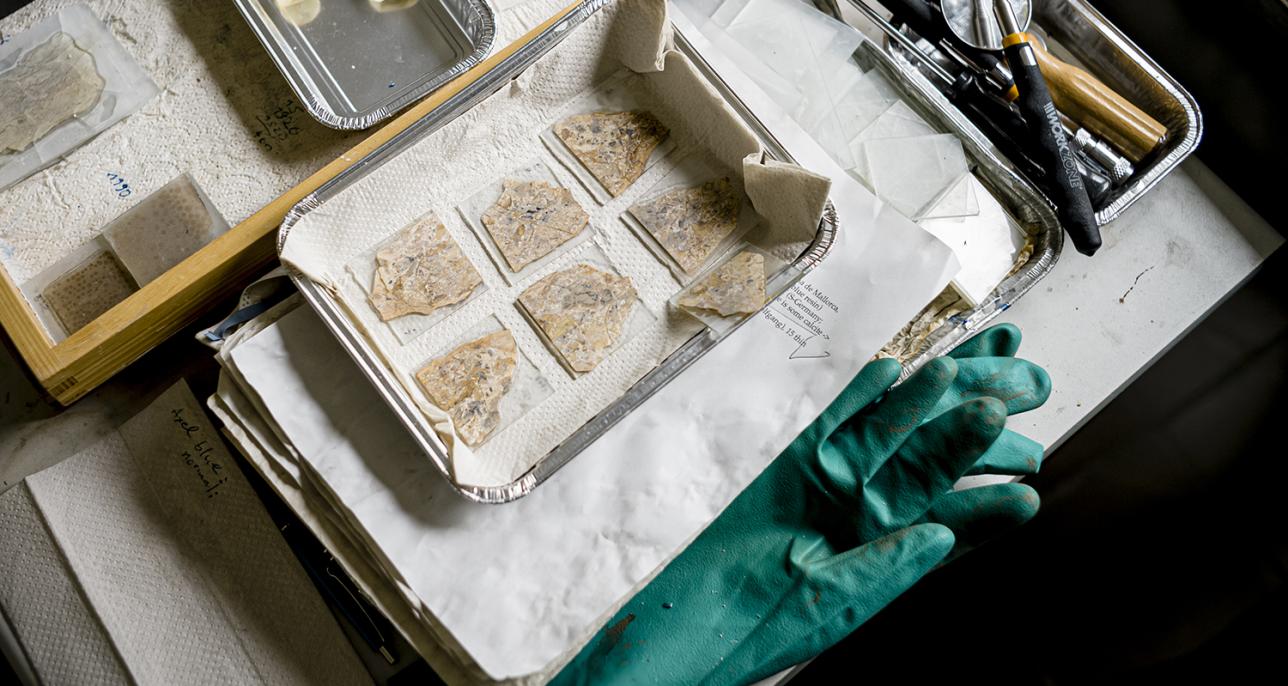
Sven Stolzenwald für VolkswagenStiftung
Knowledge of primeval times helps to counter the climate crisis
The Intergovernmental Panel on Climate Change (IPCC) has appointed palaeobiologist Wolfgang Kiessling to act as a main author of the next world climate report. Read the following interview about forecasts, parallels, and his contribution to combating the climate crisis.
Prof. Dr. Wolfgang Kiessling from the GeoZentrum Nordbayern in Erlangen is researching the effects of earlier climate catastrophes on organisms and ecosystems. The Volkswagen Foundation supported him from 2006 to 2010 with a Lichtenberg Professorship, and since 2019 he has been funded under the Foundation’s funding initiative "World Knowledge – Structural Support for Rare Subjects".
Professor Kiessling, you're working on the next world climate report. What exactly is your role?
As the main author in the IPCC’s Working Group 2 "Impacts, Adaptation, Vulnerability", I am working on a summary of the current state of research concerning the effects of climate change on natural and social systems – together with 260 colleagues representing a wide range of disciplines from 63 countries. Personally, my job is to ensure that historical aspects of climate change are adequately taken into account.
What can we learn from primeval times?
Findings on extreme events in the Earth's history can help us understand current processes and better counteract climate change. The extinction of species on a global scale – largely triggered by massive climate change – is nothing new: The Permian-Triassic extinction event of 252 million years ago was such a dramatic occurrence. At that time, 90 percent of all species living in the ocean and 75 percent of those living on land became extinct, including all coral reefs. The extreme temperature rise of 10°C, oxygen depletion in the seas and ocean acidification were the cause.
How did that happen?
At the end of the Permian, the largest mega-volcanism in the history of the Earth took place in Siberia. Large amounts of carbon dioxide and methane were transported into the atmosphere, leading to a rapid rise in temperature and acid rain. The volcanic eruptions experienced in modern times, by the way, are very different and come to an end much more quickly.
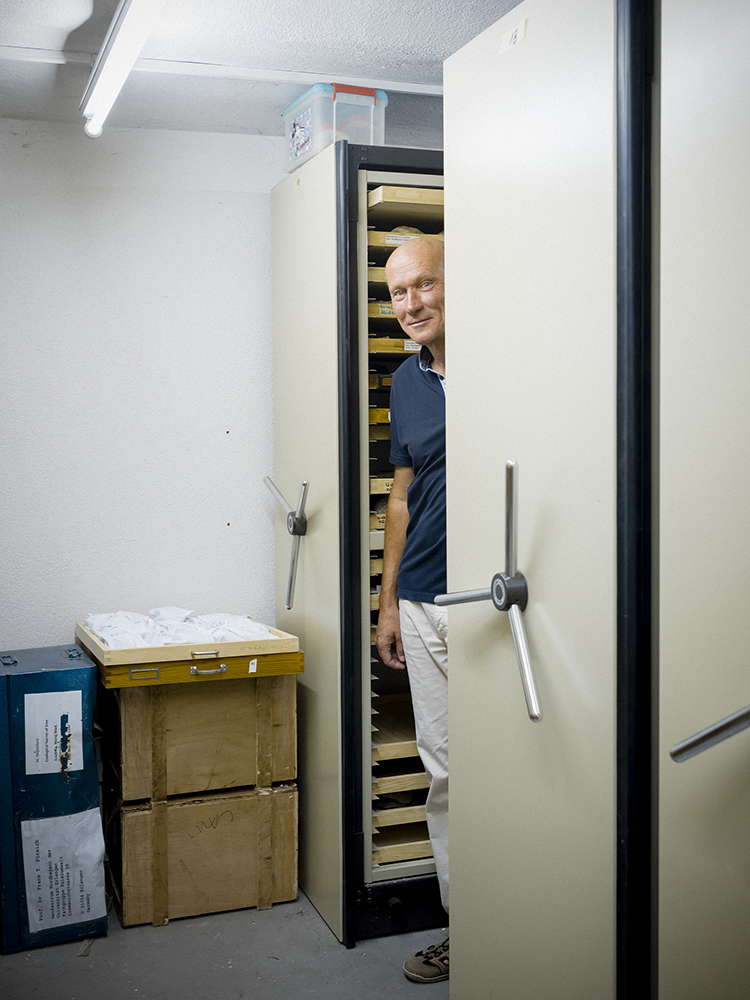
Corals are one of the favourite objects in Kiessling's research - here he is standing in front of a cabinet with valuable fossils.
How do you know what the sea temperature was 250 million years ago?
We analyze the oxygen isotopes found in the microscopic teeth of early vertebrates. The ratio of the oxygen isotopes with the mass numbers 18 and 16 in the sea is temperature-dependent. Using mass spectrometry, we can quantitatively break down the proportions and thus estimate the temperature.
Corals are among your favorite objects of research. What do they show you?
Fast-growing reef corals like the tropical hard corals need microscopic algae as symbionts. The coral polyp receives sugar compounds from the algae, providing it with most of its nutrition. Since the algae need sunlight for their photosynthesis, the corals live in the upper layers of the ocean. If temperatures are too high, they repel the algae and coral bleaching occurs; the corals are starved of nutrition and can die. In 2015/16, a large coral bleaching process was observed in the tropics.
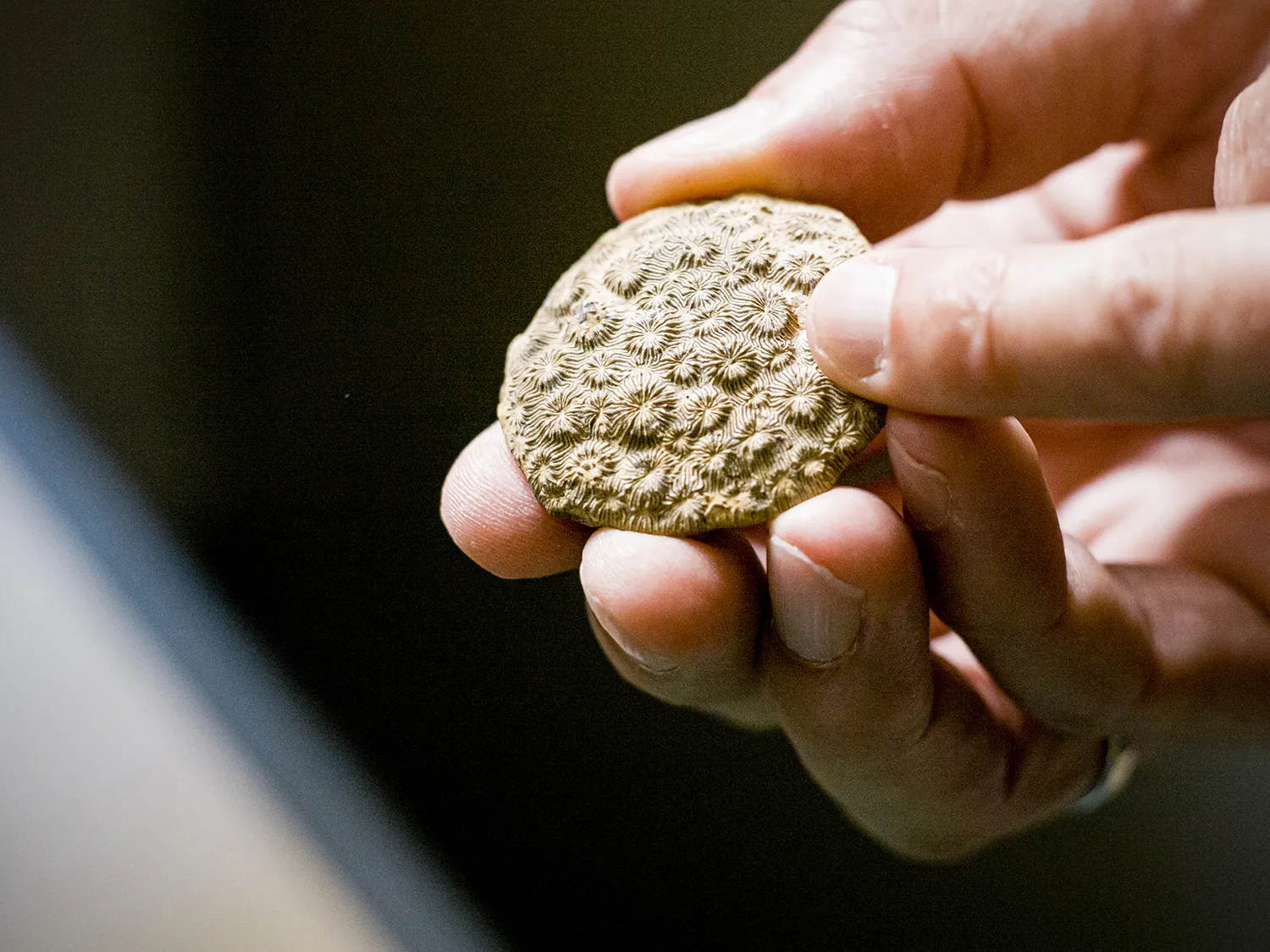
As witnesses of climate and environmental changes, objects like this 220 million year old reef coral are far more than just beautiful fossils for Wolfgang Kiessling.
And that also happened in earlier times?
At the Permian-Triassic boundary the changes were so dramatic that all hard corals became extinct. And during the climate changes of the Pleistocene ice ages and interglacial periods some 100,000 years ago, the corals "moved" to cooler waters, to greater depths or to higher latitudes.
What do you predict will happen to the tropical reefs of today?
At the moment it doesn’t look like quite so many coral species will die out due to ocean warming. Nevertheless, some coral reefs in the tropics are likely to decline sharply or even disappear. Corals grow too slowly to keep pace and build up larger structures. On top of this, many corals are migrating to cooler areas: Their larvae drift with the ocean currents and form reefs elsewhere – as is now happening just off the coast of Japan. A major decline in coral reefs would have massive consequences: Living reefs form important habitats for fish populations, the food source for large numbers of people, and an effective coastal protection.
What parallels do you see to earlier times?
Volcanism and the accompanying stress had already begun in the Permian before the catastrophic extinction of species began, as the ammonites of that time show us. During our underwater excavations we discovered that in the last four meters of deposits before the Permian-Triassic boundary – corresponding to a period of about 700,000 years – the calcareous shells of these cephalopods become smaller and have a simpler pattern. Similar dwarfing-processes are now occurring in some fish species, apparently a reaction to ocean warming – this too has an impact on human food resources.
What concrete specific contribution can you make towards countering the climate crisis?
From the Palaeobiology Database we started in 1999, we identify significant occurrences, gain insights into evolution, biodiversity and the extinction of species – and thus derive evolutionary patterns. This enables us to make predictions as to where global climate change will have the greatest impact and where refuges for plants and animals are most likely to be found.
So palaeobiology has become a "future discipline"?
We know that natural climate catastrophes in the past have led to the extinction of entire groups of organisms and ecosystems worldwide. We must therefore take climate change very seriously! Today, in addition to the extremely rapid process of global warming, there are other man-made factors, such as the destruction of natural habitat for land use. A mass extinction event can hardly be ruled out. Palaeontology might be a small subject, but with our knowledge of the Earth's history we are at the forefront of analyzing the current climate crisis and developing concepts for corrective action.
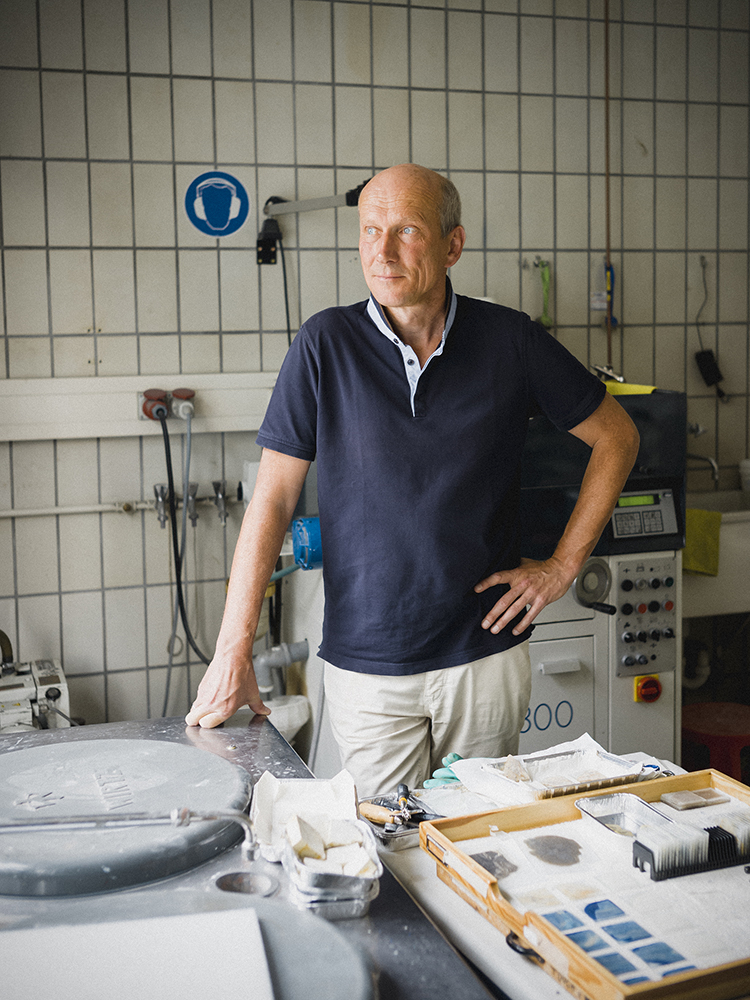
Professor Wolfgang Kiessling was Lichtenberg Professor of the Volkswagen Foundation from 2006 to 2010 and conducts research at the Geozentrum Nordbayern in Erlangen.

